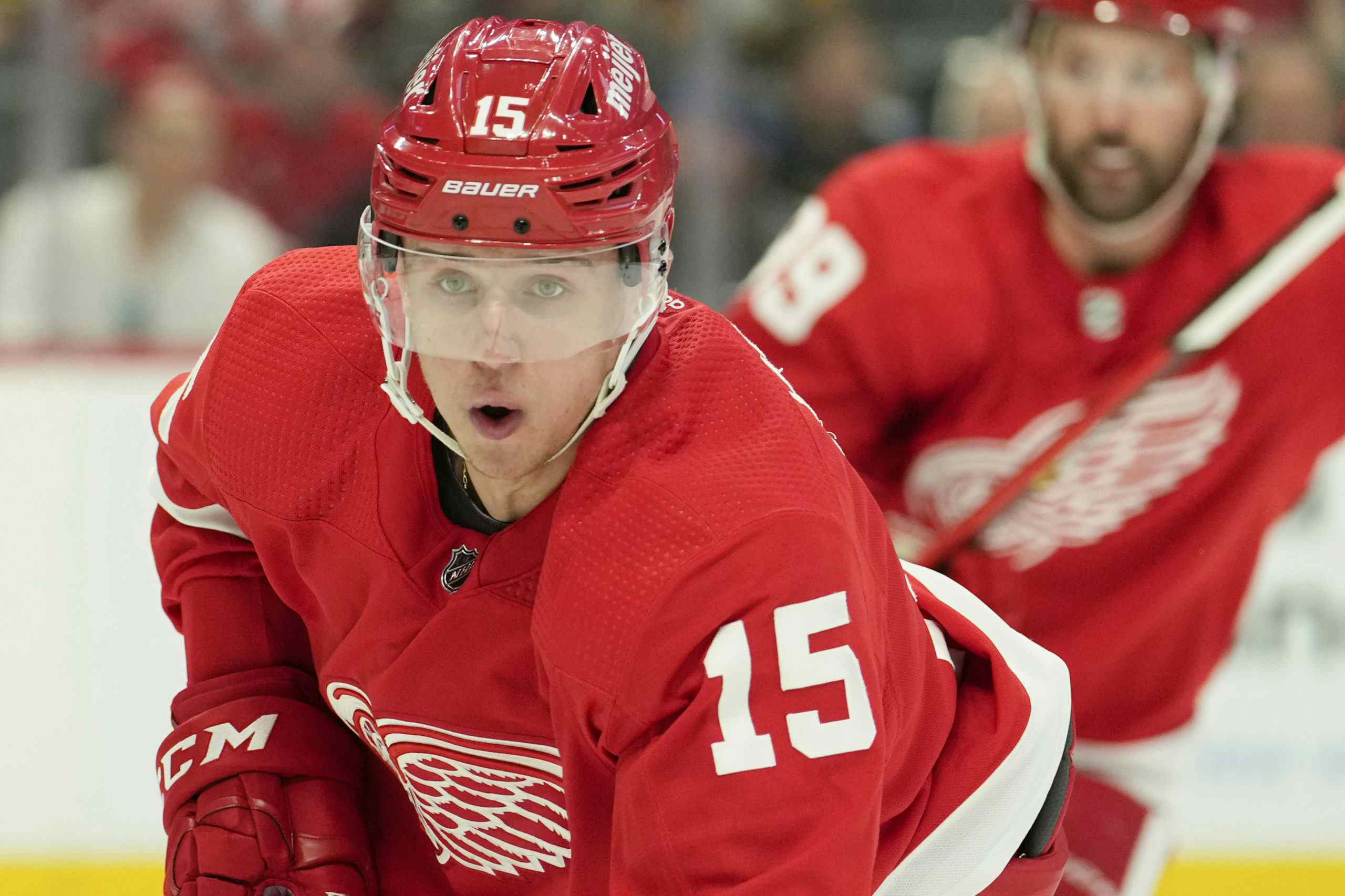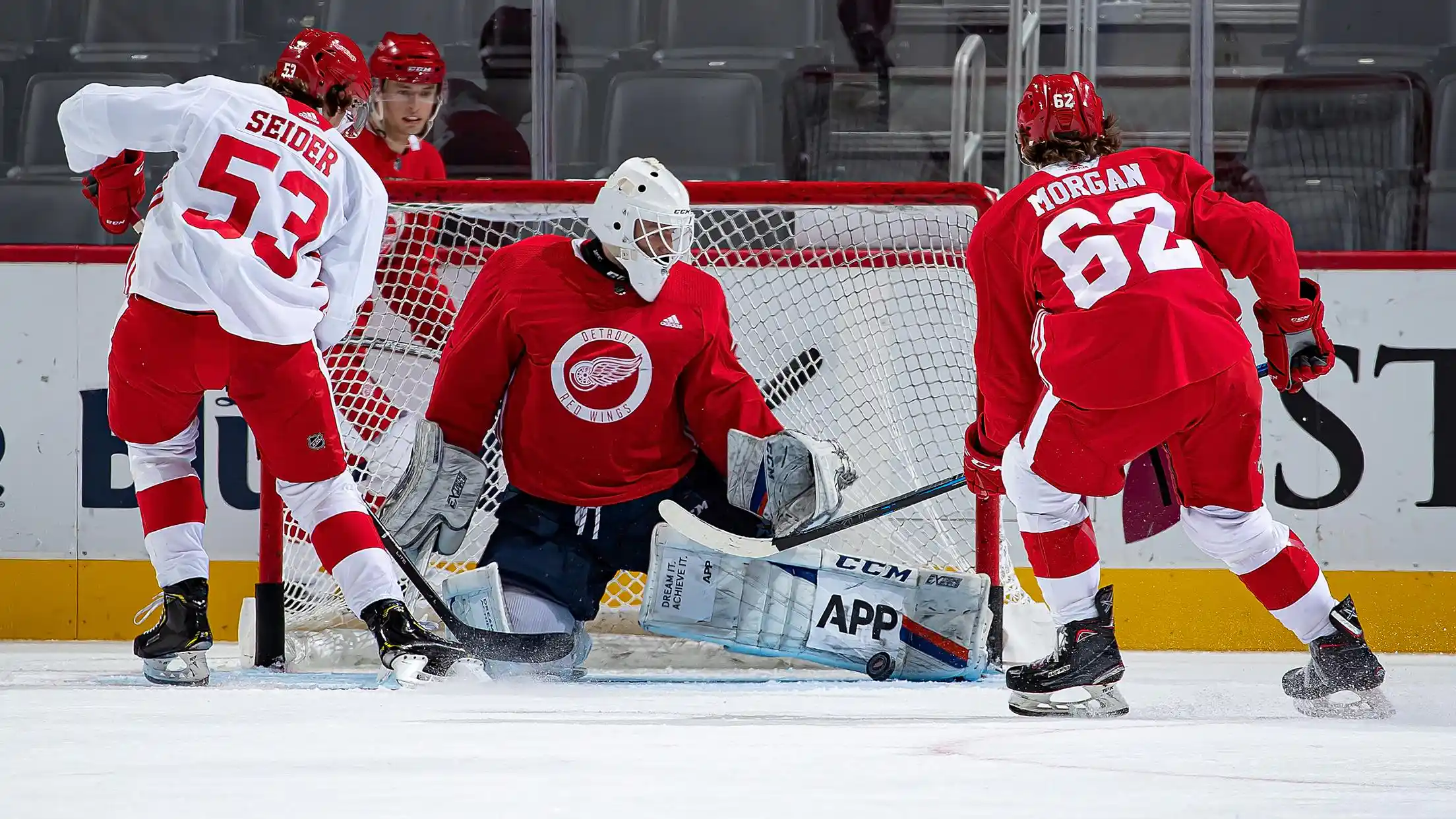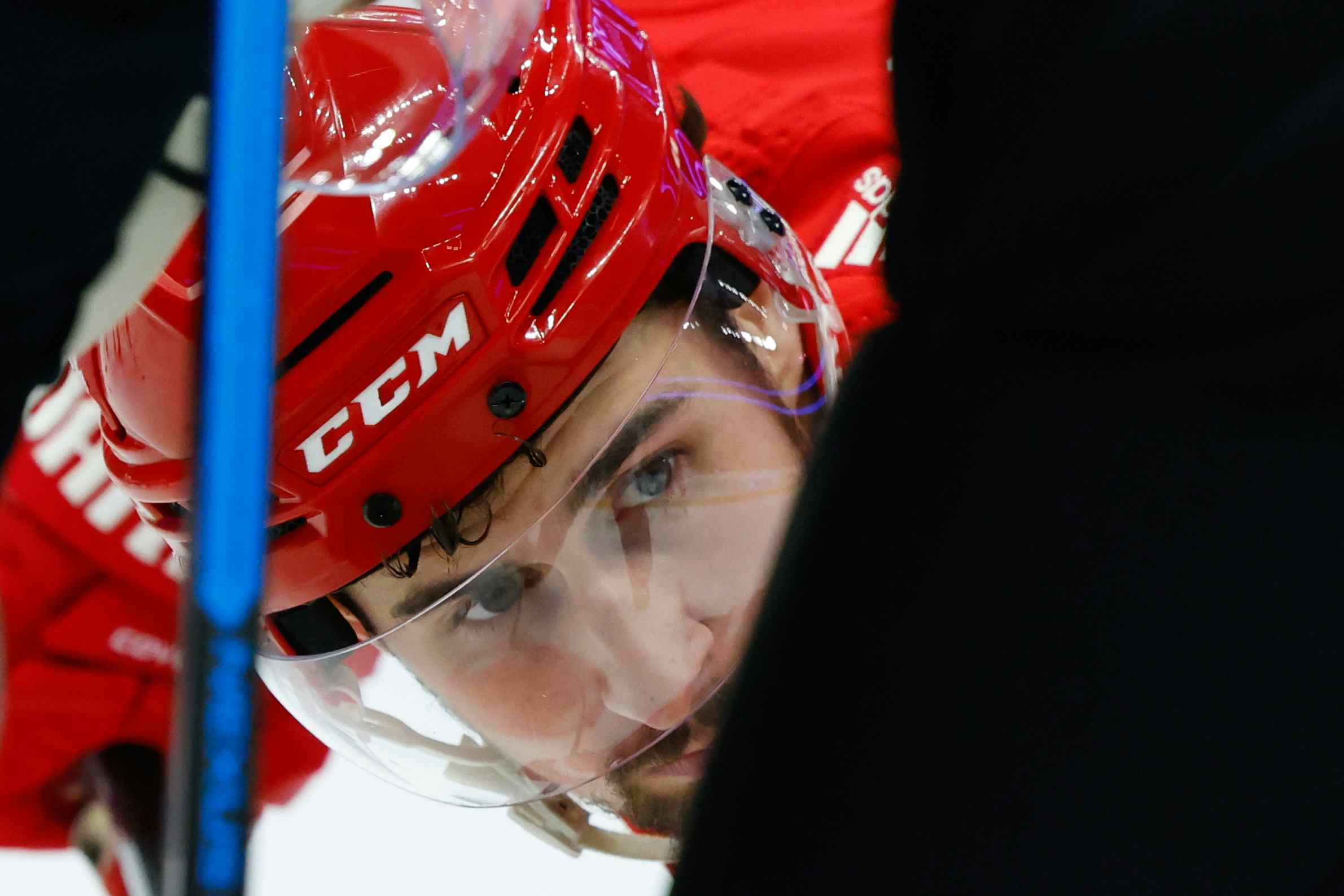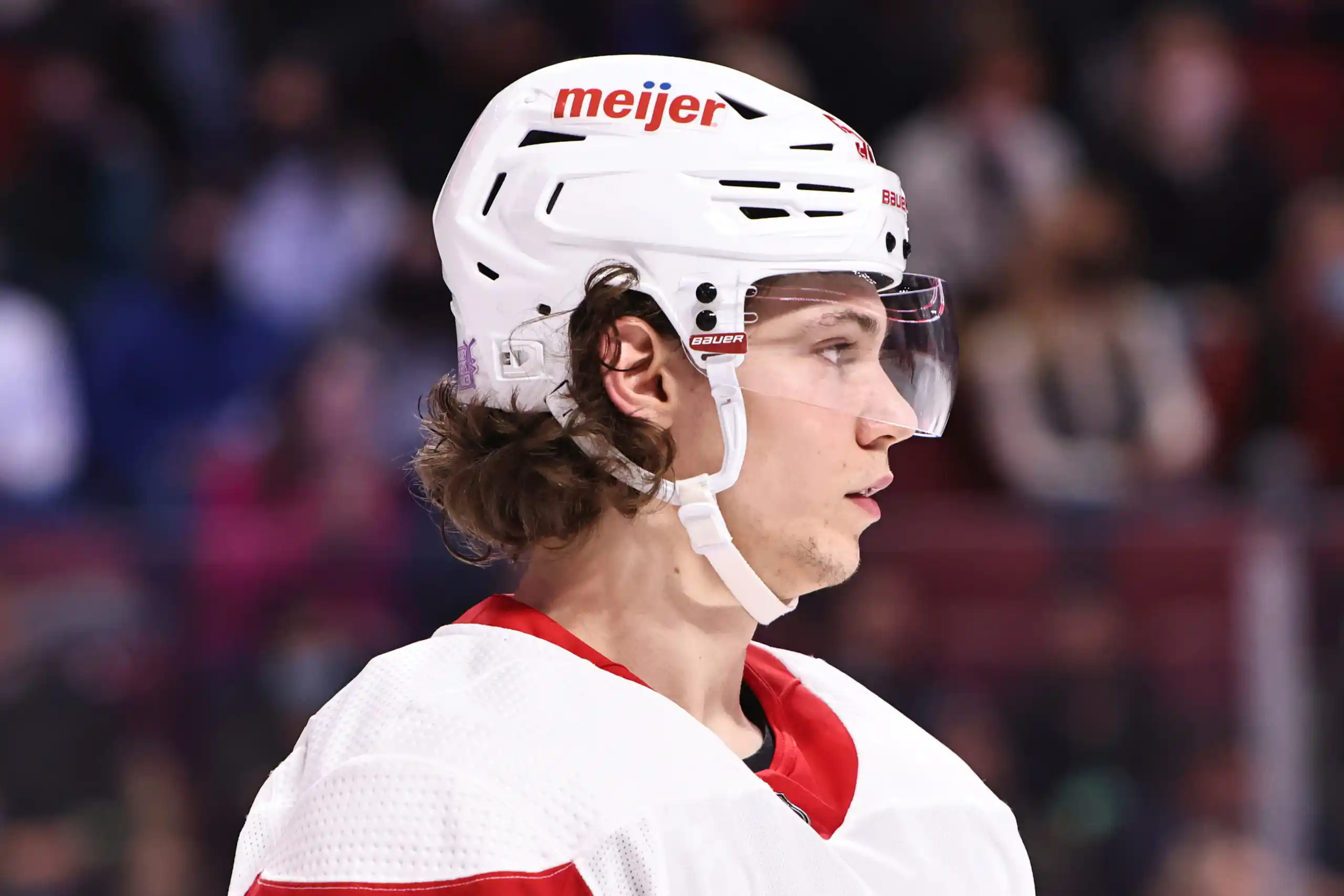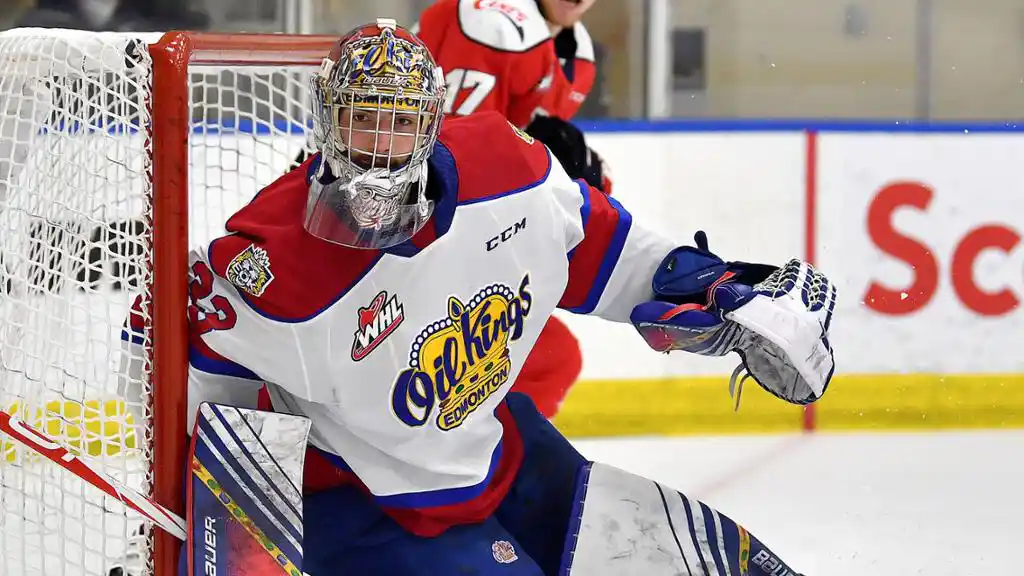Looking back at the lopsided Danny Grant/ Henry Boucha swap
By Mike Commito
7 years agoWith little else going on in the off-season, we powered up the Wings Nation time machine to head back to August 27, 1974 to zero in on the time Detroit traded Henry Boucha to Minnesota in exchange for Danny Grant.
Henry Boucha
Selected sixteenth overall by the Red Wings in the 1971 amateur draft, Boucha made his debut with Detroit at the tail end of the following season after he picked up a silver medal with the U.S. national team at the 1972 Winter Olympics. After establishing himself as a regular in the 1972-73 season, Boucha became a fan favorite.
It wasn’t his play that won the Detroit faithful over, for he wasn’t a prolific goal scorer, but rather it was his style. He had a trademark headband that he wore for every game. In an era before helmets, it was certainly an accessory that helped Boucha stand out from his peers.
Danny Grant
After playing junior hockey in Peterborough, Ontario, Grant made the jump to the NHL with the Montreal Canadiens in 1967-68. While he played just twenty regular season games that campaign, it turned out to be a whirlwind for the youngster as he stayed on into the playoffs and went on to win the Stanley Cup with the Canadiens. That offseason he was dealt to Minnesota, along with Claude Larose and future considerations, for the North Star’s first round pick in the 1972 amateur draft.
Once settled in Minnesota, Grant’s career took an upward trajectory as he established himself as a veritable sniper. In his first full NHL campaign he set new rookie scoring benchmarks, racking up 34 goals and 65 points, on his way to snagging the Calder Trophy. Interestingly, he became just the fourth player in NHL history to hoist the Stanley Cup before winning rookie of the year. The other three? Montreal’s Gaye Stewart (1943), Tony Esposito (1970), and Ken Dryden (1972). That’s some pretty illustrious company.
The Trade
When the transaction went through on August 27, 1974, it took many by surprise as it seemed to be a very lopsided exchange. While Boucha, the Olympian, was a perfectly serviceable player, Grant was a Calder winner and was just coming off another 29 goal season in Minnesota.
Perhaps the North Stars viewed the trade as an opportunity to shake up their roster. Despite Grant’s offensive contributions, they struggled in 1974-75 season, finishing with a record of 23-38-17 and placing seventh in the Western Conference. Adding Boucha certainly gave them a new look and the fact that he was born and raised in Minnesota was alluring to the fledgling North Stars.
When the two hit the ice the following year with their new teams, their career paths diverged in an unusual way. While Grant was already well known for his goal scoring prowess, when he arrived in Detroit he found himself riding shotgun with Marcel Dionne. In his first season wearing the Winged Wheel, Grant potted 50 goals and 87 points, both career highs. But Grant’s time with the “Little Beaver” was short lived. That offseason, Dionne, who had increasingly become frustrated with his situation in Detroit, was traded to Los Angeles. In the wake, Grant became the Red Wings new captain, but he would never return to the offensive numbers he put up in his inaugural season in Detroit. Moreover, beginning in the 1975-76 season, a series of serious leg injuries conspired against him. After sustaining a ruptured anterior thigh muscle in a game against the Kansas City Scouts on December 19, 1975, Grant was forced to miss the rest of the season.
The duration of his time in Detroit was pretty unassuming. As he battled his leg injuries, his offensive totals cratered and Grant found himself in a very limited role. As a result, he requested a trade and found himself reunited with his former center, Dionne, when he was traded to the Kings on January 9, 1978.
Things couldn’t have gone more differently for Boucha in Minnesota. He was having a solid season in his home state and was on pace to set career bests, however, an unfortunate incident on January 4, 1975, derailed his campaign and forever altered his career.
That night the North Stars were playing host to the Bruins. In the first period, Boucha got into a dust up with Bruins leftwinger Dave Forbes. It seemed like a pretty standard tilt, until they both exited their respective penalty boxes. Apparently unsatisfied with the result of the original donnybrook, Forbes went looking for some retribution. He skated over to Boucha and viciously attacked him with his stick. The North Stars player collapsed to the ice, he had suffered a fractured right eye socket. Boucha was never the same after the injury and it ultimately ended his career. While he did return to professional hockey the next season, playing for the Minnesota Fighting Saints of the World Hockey Association, he hung up his skates by 1977 after a brief return to the NHL.
Meanwhile, Forbes was charged for aggravated assault and immediately suspended for ten games. When his trial started that following July, it marked the first time that a professional athlete in the United States was prosecuted for an incident that occurred during a game. The trial lasted ten days, showcased twenty-seven witnesses, but even after eighteen hours of deliberation, the jury could not reach a consensus and it was ruled a mistrial. One juror said, “the vote was 9 to 3 for conviction…Three of us [himself included] did not feel that he intended to inflict any bodily harm. We felt that it arose out of the highly emotional game, and that Forbes had no control. He acted out of 22 years’ experience in hockey.”
There’s no question that Red Wings won the transaction, but how would the careers of Bouch and Grant have changed had they not been swapped forty-four years ago? While Grant would have continued filling the net, he certainly demonstrated his goal scoring acumen in Minnesota, he probably wouldn’t have reached the 50 goal mark had he not had the opportunity to flank Marcel Dionne. For Boucha, had he not been traded, he certainly would not have encountered Forbes on that fateful night in January. However, had he stayed in a Red Wings uniform, he still would have had to face the Bruins five times that season. Who knows, maybe he and Forbes would have connected on another night with far different results.
There you have it. The Boucha-Grant swap, not just an innocuous relic from a bygone era, but a rich piece of hockey history that showcases that trades, much like time travel, can irrevocably alter the future.

Recent articles from Mike Commito

